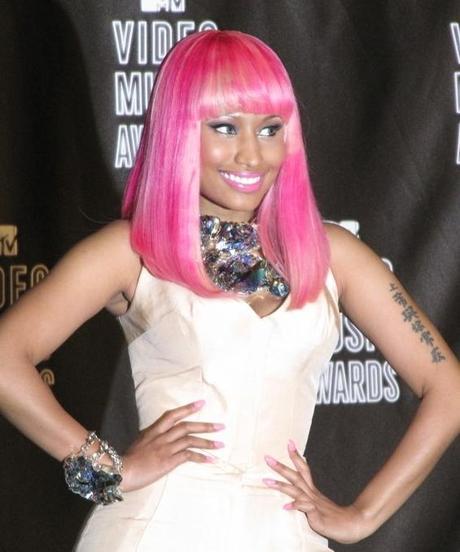
Nicki Minaj
Nicki Minaj has always taken pride in and ownership of her sexuality in her work. While some deem these choices to be controversial, it seems that she’s trying to demonstrate that women’s sexuality and sexual choices shouldn’t be shameful or impact a woman’s overall worth in any way. Minaj illustrated this belief in a recent Rolling Stone interview, stating, “I stand for girls wanting to be sexy and dance, but also having a strong sense of themselves. If you got a big ol’ butt? Shake it! Who cares? That doesn’t mean you shouldn’t be graduating from college.”
Female sexuality isn’t the only stigmatized aspect of women’s lives about which Minaj hopes to raise awareness, though. In the same interview, Minaj opened up for the first time about being pro-choice and her own experience with abortion. She honored her own anthem of acceptance when she said, “I decided there’s no reason for me to hide. I’m a vulnerable woman, and I’m proud of that.” She continued, explaining that her abortion was “the hardest thing I’d ever gone through” and that even now, as a 32-year-old woman, her abortion has “haunted me all my life.”
Minaj is hardly the only teenager to have had an abortion. According to a recent study conducted by the Guttmacher Institute, eighteen percent of U.S. women obtaining abortions are teenagers: 11 percent are between the ages of 18-19, 6 percent are between 15–17 years old, and the rest are younger than 15. Minaj revealed she falls into the middle category as she had her abortion when she was 15 years old.
Minaj stated that although her experience was arduous, she recognized that at the time she didn’t “have anything to offer a child.” The same Guttmacher Institute study shows Minaj’s rationale is a common one: according to them, three-fourths of women cite concern for or responsibility to other individuals as a primary reason for abortion, while others cite the unaffordable cost of having a child; that having a baby would interfere with work, school or the ability to care for dependents; and not wanting to be a single parent.
These reasons are just several examples of how women choose to have abortions based on their realistic comprehension of the massive responsibility of parenthood. Although abortion can be a deeply emotional and difficult process, most women, like Minaj, make the choice to have one pragmatically, based on what they feel is truly in the best interest of all involved.
Yet despite this reality, there is a disturbing new trend in state legislation: restrictions on abortion have dramatically increased. During the 2014 state legislative session, lawmakers introduced 335 provisions aimed at restricting access to abortion. By the end of the year, 15 states had enacted 26 new abortion restrictions. States have adopted 231 new abortion restrictions in addition to these new provisions since the 2010 midterm elections. In Texas, for example, abortion clinics are required to operate like ambulatory surgical centers and doctors must have hospital admittance privileges. Many abortion clinics are unable to meet these standards and are forced to close. This means that approximately 1 in 6 Texan women are forced to drive over 150 miles to the nearest clinic.
Considering that the new House and Senate are majority Republican, this trend will most likely continue. Abortion restrictions are an insidious force that gradually erodes the hard-won right of abortion in the Roe v. Wade case of 1973. The fact that American women’s abortion rights are clearly still under attack proves just how relevant the pro-choice movement still is today. It’s debatable whether or not Minaj would have achieved the success she has today if she hadn’t had an abortion and her achievements speak to how vital abortion is access is to women everywhere — especially young women.
Furthermore, Minaj’s proud and candid ownership of her experience and willingness to discuss it publicly speaks to the importance of talking about abortion, despite its cultural status as controversial and taboo. A study published in the journal of Sociological Science found that taboo subjects like abortion are rarely discussed by people who have a negative stance toward the issue. This means that anti-choice Americans are rarely exposed to accounts of abortion from women they know, which makes it more difficult for them to understand and relate to the pro-choice movement or understand why abortion rights are necessary beyond theoretical or hypothetical scenarios.
By creating platforms of discourse, we can start to reduce the stigma that surrounds such topics. For example, the organization Advocates for Youth has started a grassroots campaign called the 1 in 3 campaign, which serves as a platform for women to share their stories about abortion. Hopefully, other celebrities and public figures who have had abortions will follow Minaj’s example and also share their stories to create more opportunities for public dialog.
Ultimately, we must all openly embrace fear and vulnerability and start a dialog about abortion in order to help illustrate to legislators and society at large why abortion rights are so vital. We most show the world that we’re not willing to silently accept an infringement on those very vital rights.

